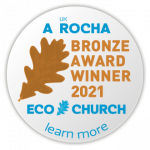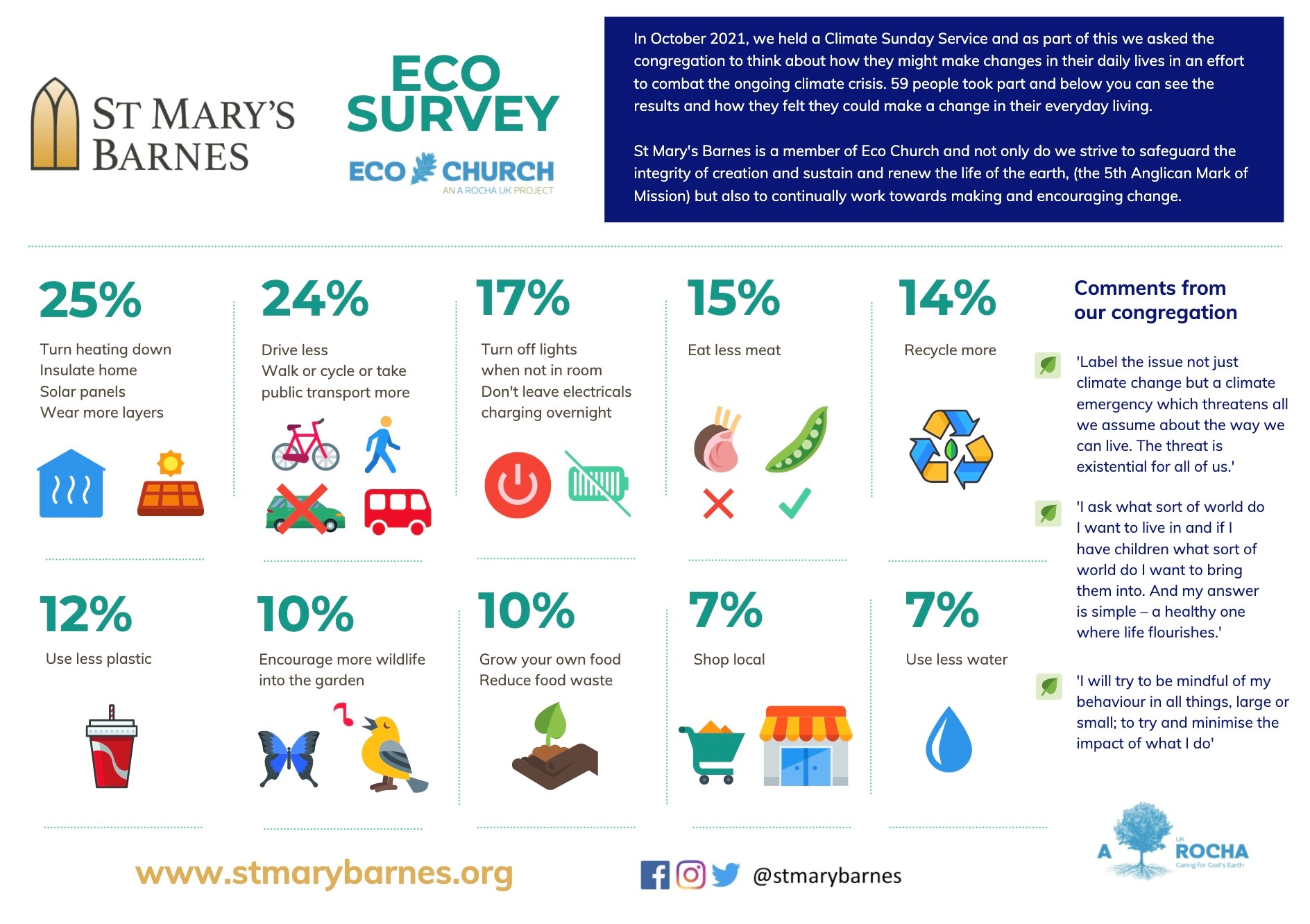Care for Creation

God is creator of our wonderful natural world but human actions are threatening it through climate change. We must work to conserve it. As we seek care for the wellbeing of members of our community, we must also care for our local environment.
The 5th Anglican Mark of Mission is: ‘To strive to safeguard the integrity of creation and sustain and renew the life of the earth’.
The Church of England has committed the Church to attain net carbon zero in our activities by 2030. There are a number of ways we can contribute and here are our aims:
- To emphasise care for creation in our services, through prayers and preaching. To hold some of our services in the open air. To involve our children’s and youth groups.
- To join in local conservation initiatives. To use our churchyard even more effectively. To look again at our own efforts at home.
- To join national and international initiatives.
- To reduce the carbon footprint of our own church and Kitson Hall.
What we are doing
Here at St Mary’s, we are part of the Eco Church Community and have recently been awarded their Bronze award; we are registered as a Fairtrade Church; and we have an Environmental Committee who are passionate and committed to help make a difference.
In October 2021, we held a Climate Sunday Service and as part of this we asked the congregation to think about how they might make changes in their daily lives in an effort to combat the ongoing climate crisis. 59 people took part and you can see the results in our infographic above.
- Turn heating down/insulate home/solar panels/wear more layers – 25%
- Drive less/walk or cycle or take public transport more – 24%
- Turn off lights when leaving room/don’t leave electricals charging overnight – 17%
- Eat less meat – 15%
- Recycle more – 14%
- Use less plastic – 12%
- Encourage more wildlife into the garden – 10%
- Grown your own/reduce food waste – 10%
- Shop local – 7%
- Use less water – 7%
Our Prayer and Worship
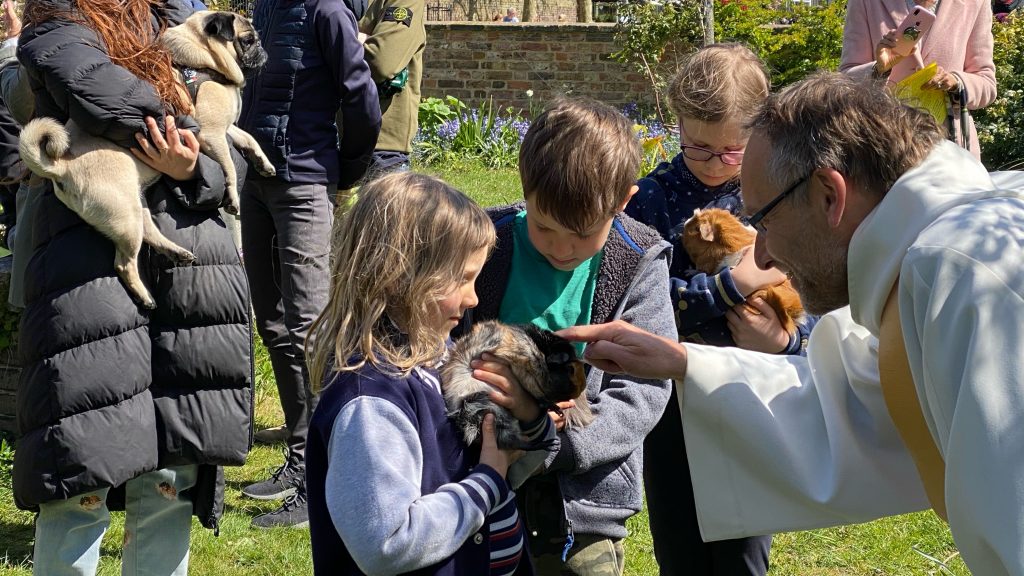
- We have an annual service at which we thank God for our fellow creatures who we have as pets, and ask His blessing on them.
- We will focus on our environmental commitment in worship with Creation Sunday and a guest preacher on a Sunday in June or July.
- We reflect our commitment in the prayers of intercession and choice of hymns in our services.
- We will mark the Creation season alongside other churches 1 September – 4 October (St Francis Day) each year. At our Harvest Festival, we give thanks to God for the food we receive and for those who grow it and bring it to our tables.
The Churchyard Garden
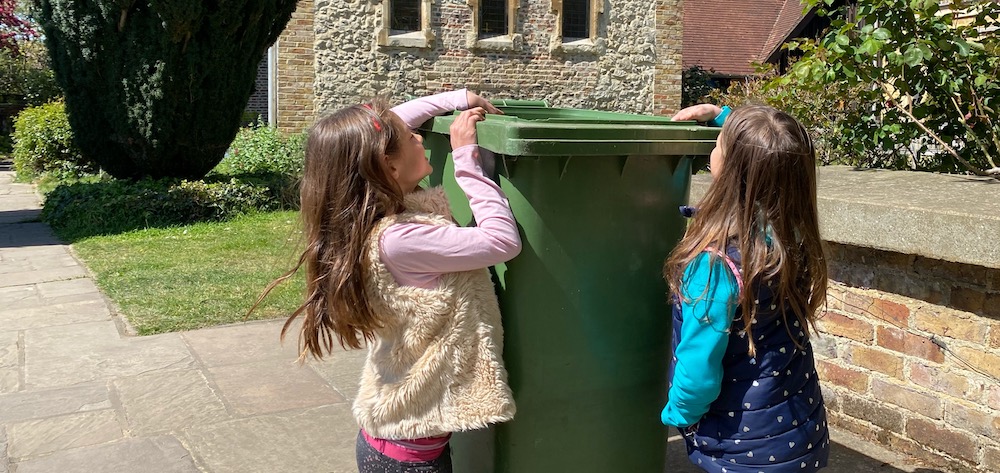
- The gardening team plants where possible to encourage wildlife, composts regularly, and resolves only to use organic pesticides and repellents.
- A recycling bin is checked regularly for content that can be reused.
- Two squirrel-proof birdfeeders hang in the trees and bird boxes and insect houses will be installed in the near future.
- A space has been cleared for children where they will be encouraged to create and plant their own garden. The children’s and youth groups helped plant our beautiful Easter garden in 2021.
- The churchyard garden is a focal point for passers by and it is hoped that its natural beauty and invitation to wildlife will both challenge and inspire people to think seriously about the environment.
- We are looking into the possibility of installing a water butt.
Our buildings
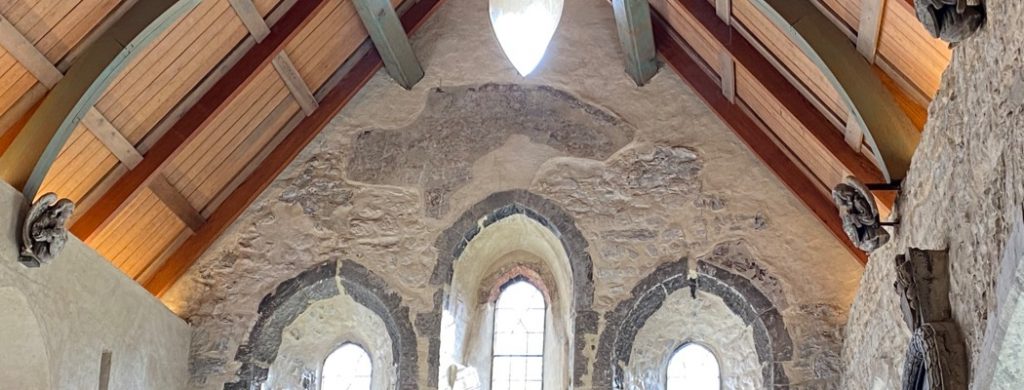
- Our electricity is supplied from renewable resources.
- We need to move away from gas heating as this is the main source of our carbon footprint, and we are investigating clean technology alternatives.
- We are looking into better insulation of Kitson Hall.
- The main lighting inside the church is LED.
What can I do at home?
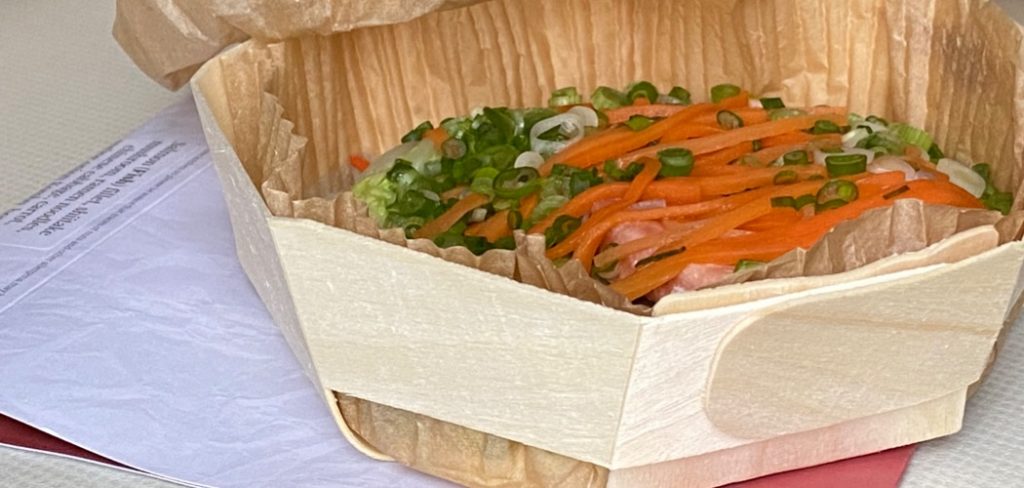
- Think about whether you really need to take the car on a particular journey, and if you do, could you share a car with someone or offer someone a lift. Walk or take public transport if it is an option.
- If you don’t already, think about what you can Reduce, Reuse and Recycle. Donate to charity shops/swap with friends and family/take your own shopping bags with you/reuse as much as you can/join our St Mary’s Freecycling WhatsApp group.
- Look at the products you buy for the house and make changes where you can. Swap to recycled toilet and kitchen paper. Use recycled paper in your printer. Buy plastic alternatives such as wooden toothbrushes and cotton buds. See what local shops stock or look online at companies such as:
- Get children involved – inspire the next generation.
- If you have outside space, plant trees, wild flowers, herbs fruit and vegetables – use small seed suppliers that are green and carbon neutral, supplying locally grown seeds to try to break the corporate monopoly of most seed production such as:
- Put up bird feeders/bird boxes/insect houses to encourage wildlife. Contact Barnes Hedgehogs to create access for hedgehogs in your garden.
- Rather than buying gifts for people, consider making donations to charities – you save the cost/waste of packaging and you are helping charities and organisations in their vital work. It has the added benefit of making you and the recipient feel good too!
- Change your computer search engine to Ecosia – the search engine that plants trees It is non-profit and accepts adverts but the money from them goes straight towards planting trees, so ultimately every time you search with Ecosia, you are planting another tree.
- Tell everyone you know what you are doing and encourage them to do likewise – if we all do a little bit then we can make a big difference.
- Twin your toilet and help fund toilet projects in poor communities Toilet Twinning – Flushing away poverty, one toilet at a time
What can I do in the community?

- Support local shops and businesses – be conscious of where you eat, drink and shop.
- Look at the products you buy – Are they ethically sourced/from sustainable sources? Consider
- Fairtrade Foundation
- Rainforest Alliance
- UTZ – sustainable farming
- Faith in Nature – natural beauty products
- Try to avoid buying products containing palm oil.
- Get involved with community groups and organisations such as
- Take a bag with you and do your own litter picks when you are out walking.
- Take your own cups/mugs with you when buying a takeaway.

